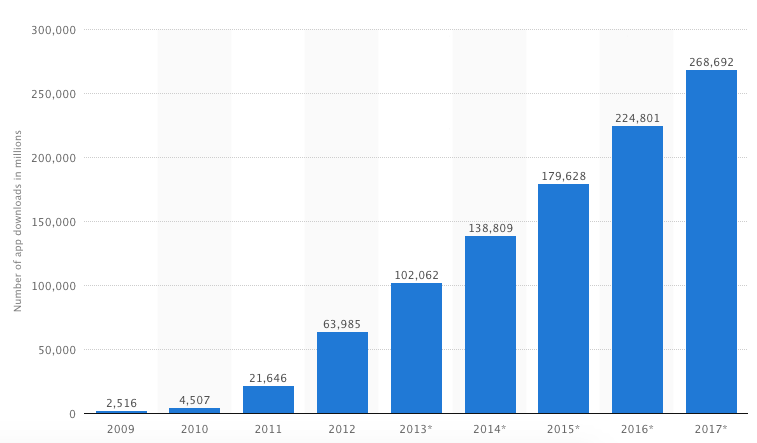Message to the bears: search engine optimisation (SEO) is alive and well — and is even destined to grow at a faster pace over the next few years.
In this context, Mobile App Optimisation — “MAO”, as we call it here — is very likely to outperform more traditional channels in optimisation.
“In 2009, worldwide mobile app downloads amounted to approximately 2.52bn and are expected to reach 268.69bn in 2017,” Statista.com reported. That is a stunning CAGR at almost 80%.

This testifies to the opportunity represented by this segment, which was only a niche market three years ago; it tells me that it’s not only time to think of SEO for websites, but it’s also time to invest in MAO.
MAO’s not necessarily more expensive than traditional SEO, but what does it take then to make a real breakthrough in this hot space?
Firstly, consider that Google indexes app-related content through Mobile App Indexing.
How does it work?
It’s pretty simple.
“The App Indexing API lets you annotate the actions users take in your app, and send that data to Google. Google can then surface the content from those actions to users via query autocompletions from the Google app,” Google says.
Secondly, Google is pushing for app installations through app indexing, and since April 2015 “people searching on Google can also discover your app if they haven’t installed it yet”.
My take on all this is:
- Software & IT developers will be in high demand for SEO-related purposes and projects.
- Google’s MAO algorithm is set to become more sophisticated and it will require SEO experts to investigate its changes.
- A tailored strategy must be aligned with the stated target, depending on whether the rankings are associated to an app or a website or both.
If you want to discuss this topic with our team, please email us at info@hedgingbeta.com
